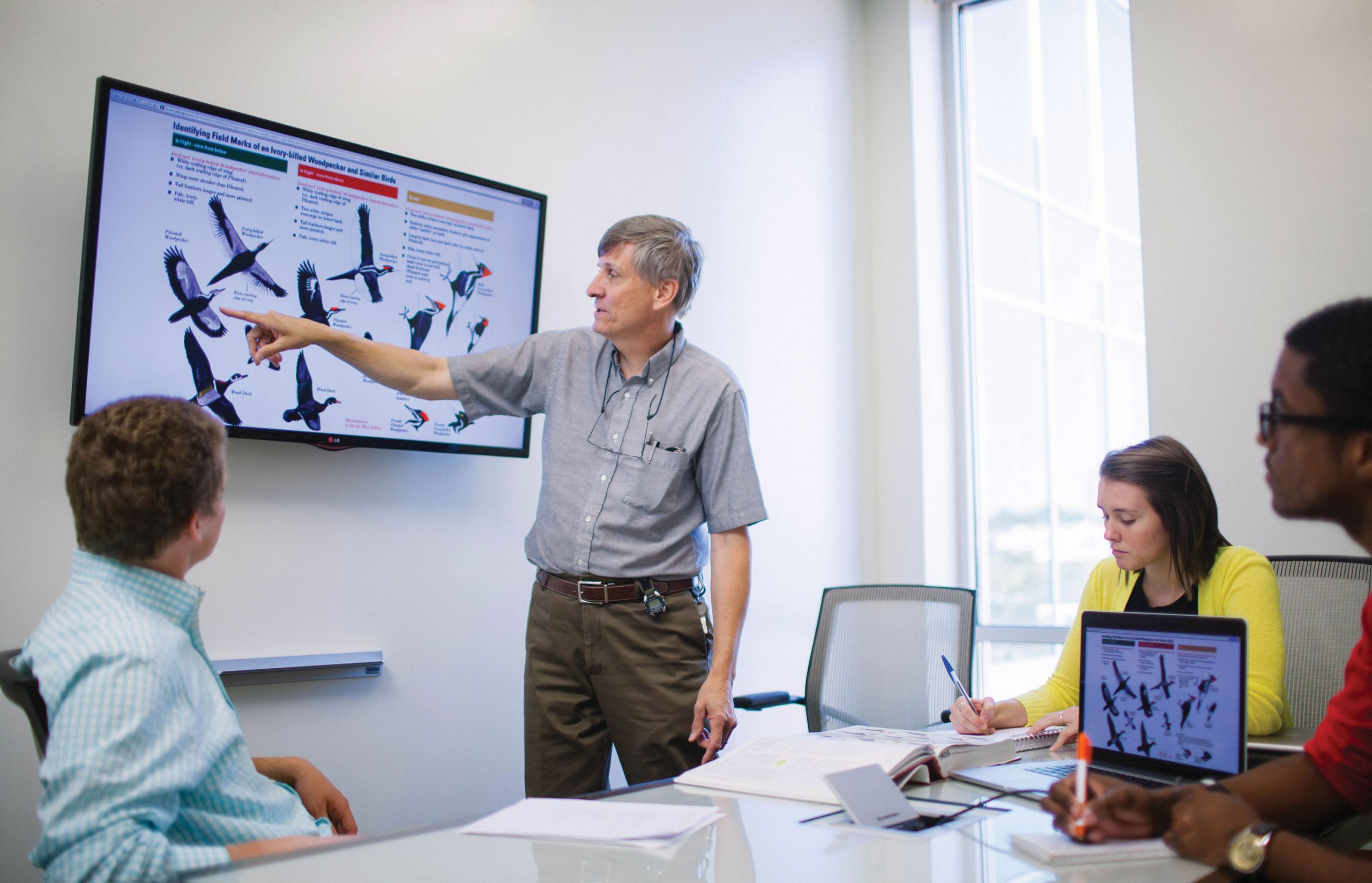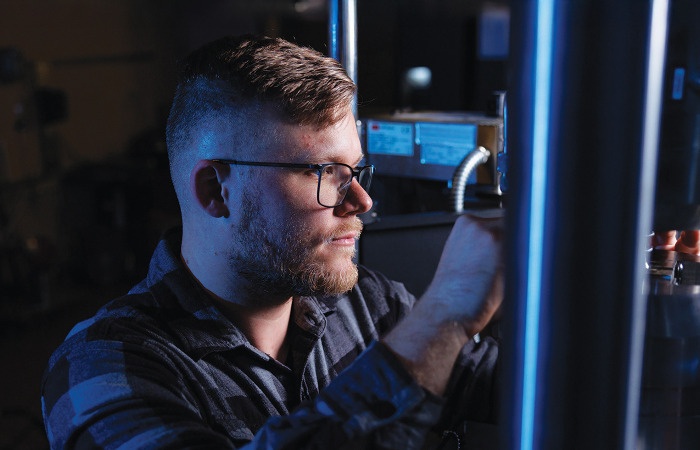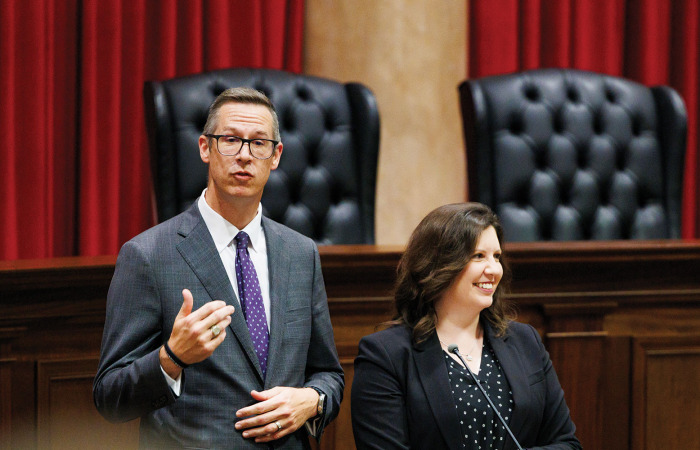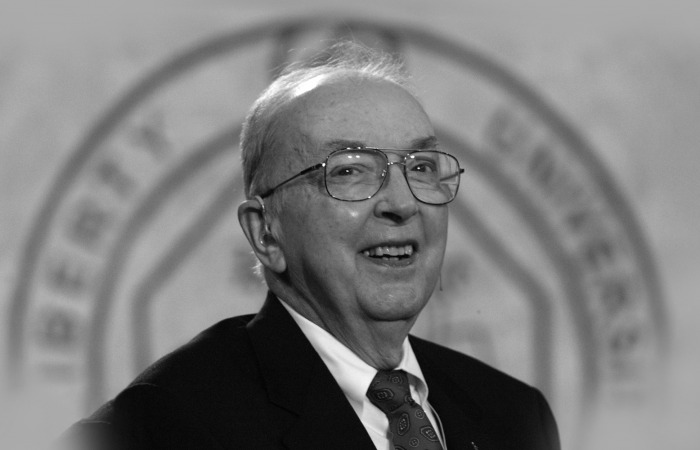At an orientation held two weeks before the semester officially started, Dr. Ronald Godwin, provost and senior vice president for academic affairs, challenged new faculty to consider their purpose in joining the ranks of the world’s largest Christian university.
He charged them to become “co-laborers at Liberty as it seeks to produce Champions for Christ, impacting every corner of the world and every sphere of society for the kingdom of God.”
The university is striving to accomplish these goals through Christ-centered, academically excellent education. Enrollment numbers are showing that Liberty’s model is an attractive choice. The university hit record enrollment for students studying on campus this year — more than 13,800. Liberty welcomed its largest incoming class to campus this year — more than 4,200 new and transfer students. About 64 new faculty were also hired, both to serve in new positions or as replacements for ones left vacant.
For Christian educators to impact society on a global scale, Godwin said it is important they first reject elitist and exclusionary educational philosophies. While many in academia seem to think that a university’s prestige is best demonstrated by how many students it turns away, Liberty believes that a school should be measured by how well the students who are accepted are educated and trained.
“As a teacher, professor, or instructor,” he asked, “do you take pride from what some other teacher taught the students in your classroom before these students ever arrived in your class, or do you take pride from what you yourself teach your students?”
This commitment to both educational excellence and access explains why Liberty prides itself on being foremost a teaching university.
“I believe in honoring those people who most effectively, skillfully, and productively invest themselves in the lives of students,” Godwin said. “I believe that reflects a more biblical philosophy of education.”
Liberty fulfills its commitment to educating students in a number of ways, beginning with equipping students with core competencies during their freshman and sophomore years. The College of General Studies (CGS) was formed three years ago in order to focus on providing students with the foundational skills necessary for success — both in college and in life.
By tracking student progress in specific areas such as mathematics or writing, or by identifying high-risk students and ensuring that such students are guided through difficult assignments, as well as by providing other methods of assistance, the CGS has increased completion and pass rates for both on-campus and online students to about 90 percent in general education courses.
“We try to actually repair learning deficiencies,” Godwin said. “Students … come to us with a wide variety of disparities in their base knowledge, and we try to assess those students when they come in, and — to the degree that you can in a large school when dealing with large numbers of students — repair, remediate, shore up, and strengthen those students.”
Teachers are also regularly equipped with resources and training to ensure they are both up-to-date on the latest learning technology and continually improving the effectiveness of their instruction. The Center for Teaching Excellence provides resources and professional development training for Liberty’s faculty.
Each school within the university also regularly assesses its curriculum to make sure that it is both relevant and comprehensive. The Department of Biology & Chemistry has added two new majors — biopsychology and forensic science — as well as an M.S. in Biomedical Sciences (read more on Page 36). The Department of Nursing has launched its Doctor of Nursing Practice program. In other departments, nearly 30 new courses have been added, and many others have been revised to keep programs up-to-date and better able to prepare students for today’s workplace. The Department of Studio & Digital Arts, for example, has revamped some of its 100-, 200-, and 400-level classes and added a course in Medieval Art. The Bachelor of Fine Arts and Master of Fine Arts will launch this spring. Several new upper-level English courses in the Department of English & Modern Languages will vary course content each semester, focusing on specific periods, genres, and specialized writing skills.
Liberty’s goal for its students is more than just awarding graduates a diploma, Godwin said. It is to equip them with the skills they need to succeed in their chosen career fields.
An important part of Liberty’s commitment to student success is the university’s emphasis on experiential learning. From nursing clinicals to broadcasting opportunities at Liberty Flames Sports Network to the School of Law’s Lawyering Skills program, Liberty’s degree programs provide hands-on learning opportunities.
Whatever delivery format a student chooses in order to earn their degree at Liberty — be it on campus, online, or a mix of both — Godwin is confident they will find their academic experience to be top-notch, thanks to the dedication of the university’s leadership and faculty.




